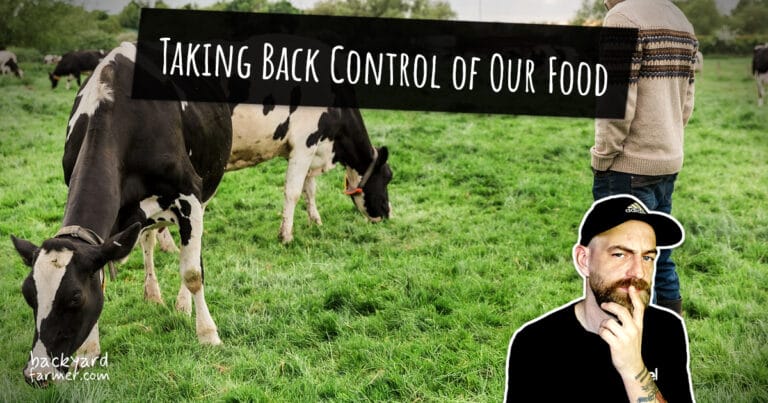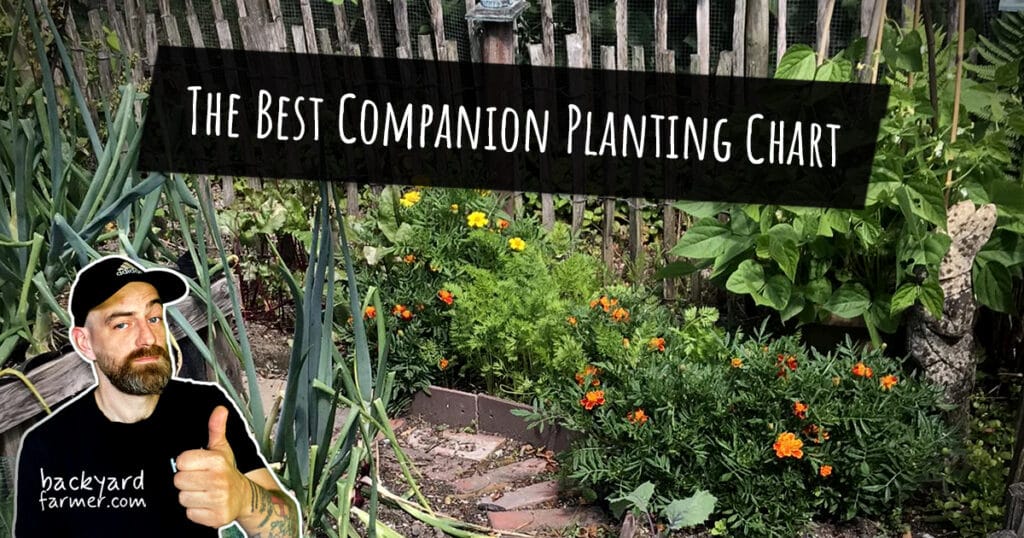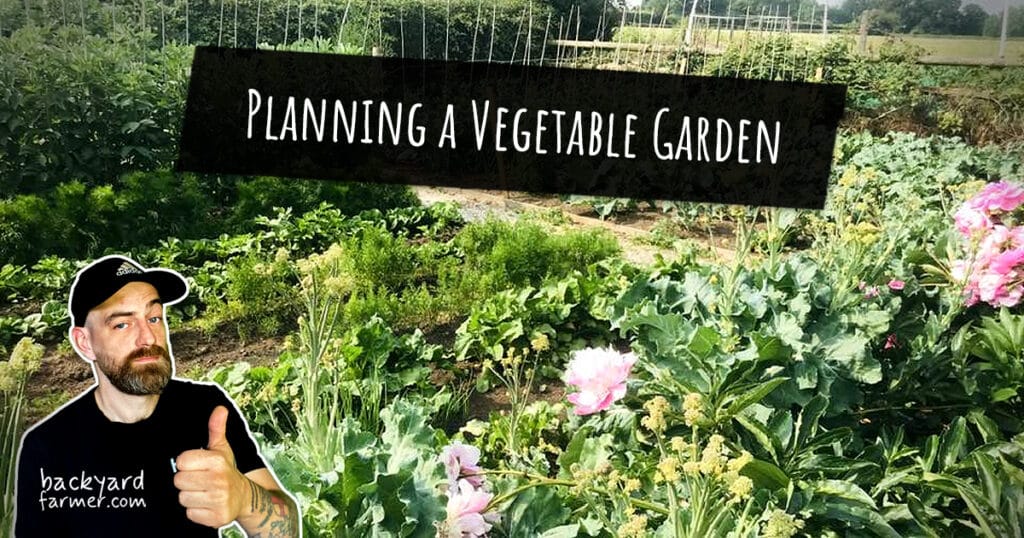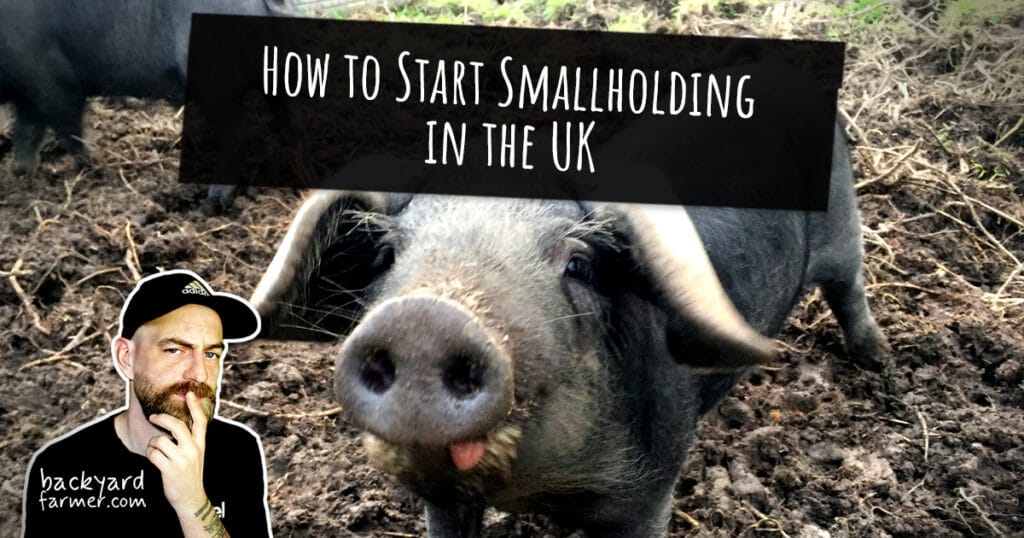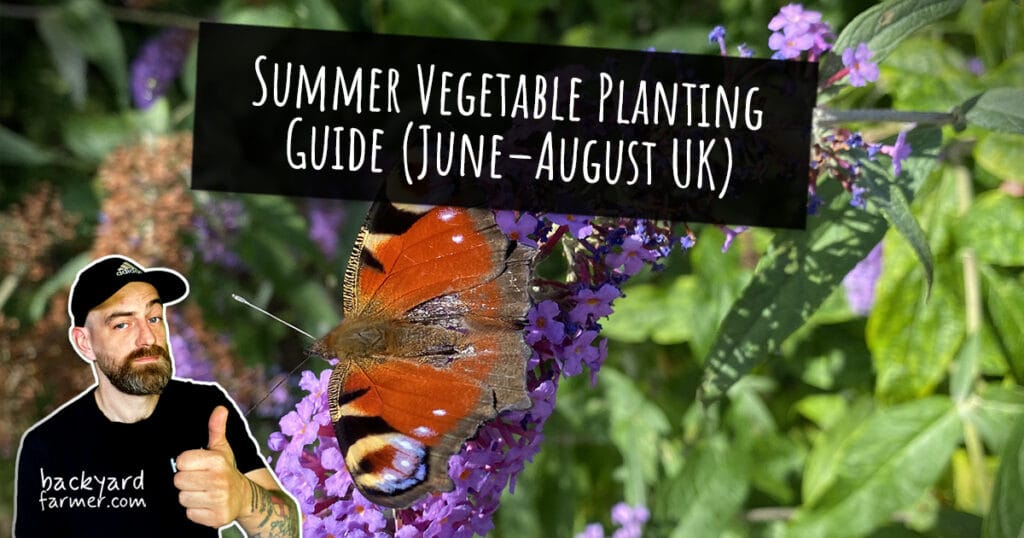Introduction: Why Control of Our Food Matters Again
For most of human history, food wasn’t something we overthought. It came from nearby land, familiar people, and processes we understood. What we ate followed the seasons, relied on practical skills, and stayed rooted in place. In other words, people had far more control over their food and where it came from.
However, in a relatively short space of time, that relationship has changed dramatically.
Today, much of our food comes from systems we rarely see or fully understand. Ingredients are sourced globally, processed heavily, and sold back to us under layers of branding and packaging. While the modern food system offers convenience, it also creates distance between people and the food supply itself.
Supermarkets offer choice. At the same time, they reduce transparency. As a result, many people feel disconnected from their food — unsure who controls the food supply, how products are produced, or what actually goes into everyday meals.
This article isn’t about rejecting modern life or swearing off supermarkets altogether.
Instead, it explores how control of our food gradually shifted away from individuals and communities, largely through corporate consolidation and changes in how food is produced, processed, and distributed. More importantly, it looks at how we can begin taking back control of our food in ways that are realistic, practical, and achievable.
Taking back control doesn’t require land, money, or perfection.
Rather, it starts with awareness. By asking better questions about the modern food system. We can make small, intentional choices that reconnect us to food as nourishment rather than entertainment — and as a shared responsibility rather than a passive transaction.
By understanding how the food system changed, who now holds the most influence over what we eat, and what that means for health, land, and local communities, we can begin to make better-informed decisions about our food choices.
Not to live perfectly — but to live better.
And, over time, to rebuild a healthier relationship with food, one step at a time.
Continue your journey toward food independence
If you’re exploring how to take control of where your food comes from, these guides will help you grow your own, preserve crops, and make sustainable choices.
- Low-energy food preservation & zero-waste pantry – Practical methods to store and preserve food sustainably once you’ve harvested it.
- What vegetables are good to grow – A foundational guide to choosing productive and rewarding vegetables that are worth growing in your garden or allotment.
- How to grow strawberries at home – Step-by-step advice for growing a popular fruit crop at home, adding variety and nutrition to your produce.
Who Controls the World’s Food Supply?
When people talk about control of the food supply, it’s easy to imagine a single group or hidden authority pulling the strings. In reality, control of our food is far less dramatic — and far more structural.
Today, control isn’t about one organisation deciding what you eat. Instead, it comes down to market dominance, corporate ownership, and scale within the modern food system. A relatively small number of multinational corporations now control large parts of food processing, branding, and distribution. As a result, while millions of farmers grow food worldwide, most of the food we buy passes through a much narrower group of powerful intermediaries.
Control vs Choice in the Modern Food System
At first glance, supermarkets appear to offer endless choice. Shelves are filled with different brands, flavours, and product ranges. However, once you look more closely, many of those brands trace back to the same parent companies. In effect, much of the choice we see in supermarkets is a branding illusion rather than true diversity within the food supply.
This matters because corporate ownership shapes priorities across the food industry. As companies grow larger, decisions about ingredients, sourcing, processing, packaging, and pricing increasingly focus on efficiency and profit at scale. Consequently, transparency, nutrition, animal welfare, and environmental care become harder to keep at the centre of food production.
Where Real Power Sits in the Food Industry
In practice, real control of the global food supply sits in three key areas:
- Food processing – turning raw crops and livestock into packaged and processed foods
- Branding – shaping consumer perception, loyalty, and demand through marketing
- Distribution – controlling how food moves from factories to supermarkets and retailers
When these stages concentrate in the hands of a few large food companies, both farmers and consumers lose influence. On one hand, farmers face pressure to produce food cheaply and at high volume. On the other, consumers are offered foods designed for shelf life, consistency, and profit rather than nutrition.
Why This Food System Became Normal
This model of food supply control didn’t appear overnight. Instead, it developed gradually through industrialisation, global trade, and rising demand for cheap, consistent food. Over time, convenience replaced connection, and scale replaced skill.
For many people, food slowly became something to buy rather than something to understand. As a result, responsibility shifted away from households and local communities and into large-scale food systems built around speed, uniformity, and growth.
Understanding who controls the food supply isn’t about assigning blame. Rather, it’s about recognising how the modern food system works — and why taking back control of our food always begins with awareness.
How Many Companies Control Most of the Food We Eat?
It often surprises people to learn that much of what lines supermarket shelves is produced or owned by a relatively small number of companies. Although the global food system depends on countless farmers, growers, and workers, most of the food we buy passes through a concentrated group of multinational corporations.
This level of food industry control isn’t the result of a single decision or some hidden plan. Instead, it has developed gradually over decades through mergers, acquisitions, and the drive for scale. Larger companies buy smaller food brands, retain familiar names, and fold them into vast global supply chains. From the shop floor, this looks like choice. Behind the scenes, however, ownership of our food is far more centralised.
Consolidation, Not Conspiracy
When people ask how many companies control our food, it helps to be precise about what control actually means. No single group dictates what individuals must eat. Rather, a small number of corporations dominate food processing, manufacturing, and branding. As a result, they exert significant influence over which foods are widely available, affordable, and heavily promoted within the modern food system.
Because these companies operate at enormous scale, they prioritise consistency, efficiency, and profit margins. Ingredients become standardised. Recipes are designed for long shelf life. Production often shifts to wherever costs are lowest. Over time, these decisions shape the everyday food environment more than personal choice alone.
Why This Level of Food Supply Control Matters
This concentration of control affects the entire food supply chain.
- Farmers face pressure to produce food in large volumes at low cost, often at the expense of soil health and long-term resilience
- Consumers are offered foods designed for convenience, durability, and shelf life rather than nutrition
- Local producers struggle to compete with the pricing power and reach of global food corporations
As a result, this model quietly narrows what is considered “normal” food. Seasonal variation fades. Traditional food methods fall away. Highly processed foods shift from occasional convenience to everyday staples.
Introducing the Major Players in the Global Food Industry
Exact figures vary, but roughly ten multinational corporations dominate a significant share of the global food and drink market. Between them, these companies own or control hundreds of familiar brands found in supermarkets around the world.
In the next section, we’ll look more closely at who these companies are, how their ownership structures work, and why understanding food industry consolidation helps explain the modern food system — without fear, blame, or oversimplification.
The 10 Companies That Dominate the Global Food Supply
When people start looking more closely at who owns the brands lining supermarket shelves, a clear pattern quickly emerges. Although packaging and brand names appear different, ownership often traces back to the same small group of multinational food corporations.
These companies do not grow all of the world’s food. Farmers and growers still sit at the very start of the food supply chain and remain essential. However, large corporations dominate food processing, branding, and distribution. As a result, they hold outsized influence over which foods are widely available, affordable, and heavily promoted within the modern food system.
Below are ten companies commonly cited when discussing who controls the global food supply. This is not a list of villains. Instead, it offers a clear snapshot of how concentrated the food industry has become.
1. Nestlé
Nestlé is one of the largest food and beverage companies in the world. Its interests span dairy, confectionery, bottled water, baby food, and pet nutrition. Through ownership and licensing, Nestlé controls hundreds of brands globally and operates at enormous scale within the global food supply.
2. PepsiCo
Best known for soft drinks and snacks, PepsiCo also owns major food brands across cereals, crisps, and convenience foods. Much of its influence comes from vertically integrated food processing and a powerful global distribution network.
3. Coca-Cola
Primarily a beverage company, Coca-Cola’s influence sits firmly in branding and distribution. Its logistics network allows products to reach almost every country, shaping global drinking habits and playing a significant role in the modern food supply.
4. Unilever
Unilever operates across food, household, and personal care products. Within the food industry, it owns well-known brands in spreads, condiments, and packaged meals, many of which are built around convenience and consistency.
5. Danone
Danone focuses heavily on dairy, plant-based alternatives, bottled water, and nutrition products. Although it often markets itself around health and wellbeing, it still relies on large-scale industrial food production.
6. General Mills
A major player in cereals, baking products, and packaged foods, General Mills has helped shape everyday eating habits. Its influence is strongest in breakfast foods and convenience-led products found across supermarkets.
7. Kellogg’s
Long associated with breakfast cereals, Kellogg’s played a major role in normalising processed breakfast as a daily staple. Its food products are designed for long shelf life and mass distribution.
8. Mars
Privately owned and highly influential, Mars controls major confectionery brands alongside significant pet food lines. Its reach extends well beyond sweets into everyday household food consumption.
9. Associated British Foods
Associated British Foods owns brands across sugar, baking, grocery staples, and food ingredients. In addition, it maintains deep links to agricultural production and commodity processing within the global food system.
10. Mondelez International
Specialising in snacks and confectionery, Mondelez owns many globally recognised food brands. Its products are engineered for convenience, flavour consistency, and long shelf stability.
What This List Really Shows
This level of food industry consolidation does not mean consumer choice has disappeared entirely. However, it does mean that much of what we eat is shaped by the same economic forces, production methods, and profit incentives.
Over time, this concentration helps explain why supermarket food often looks and tastes similar, why ultra-processed foods dominate shelf space, and why local or seasonal foods can feel harder to access.
In the next section, we’ll step back further and look at how food was produced and shared before supermarkets became the centre of everyday eating — and what was lost along the way.
How Did Corporations Take Control of Our Food?
The modern food system didn’t change overnight. Instead, corporate control of our food developed gradually, shaped by post-war recovery, industrial farming, and rising demand for food that was cheap, consistent, and available all year round.
After the Second World War, many countries prioritised efficiency and productivity within the food supply. Mechanisation, chemical inputs, and large-scale farming promised higher yields at lower cost. In many respects, this helped stabilise food production. However, it also pushed the system toward consolidation. Smaller producers struggled to compete, while larger food companies steadily expanded their influence.
Industrialisation and Scale in the Food Industry
As farming became more industrial, food processing followed the same path. Turning raw crops and livestock into packaged foods required factories, logistics, and significant capital. As a result, companies that could operate at scale gained clear advantages over smaller producers.
Over time, this shift moved control away from farms and toward processors and distributors within the food industry. Food became less about local conditions and more about standardised inputs that could be reproduced anywhere. The goal was consistency — the same product, the same taste, wherever it was sold.
Global Supply Chains Replace Local Food Networks
As transport and refrigeration improved, food began travelling much further. Ingredients could be grown where land and labour were cheapest, processed elsewhere, and then sold across the global food supply.
Although this reduced costs and increased availability, it also weakened local food systems. Markets and small producers were undercut on price, while traceability became harder. Consequently, responsibility for how food was grown, processed, and handled drifted further away from the people eating it.
Convenience Becomes the Default
As more people moved into urban jobs and busier work patterns, time became increasingly scarce. In response, food companies expanded the production of ready-made, long-lasting foods designed to save time and effort.
Gradually, convenience replaced participation. Cooking skills declined. Food preservation methods faded. Preparation shifted from home kitchens to factories. As a result, food production — once a shared responsibility — became largely outsourced.
A Slow Shift of Responsibility in the Food System
Importantly, this shift didn’t require a single decision or hidden agenda. Control of the food supply moved quietly, driven by incentives, habits, and everyday choices. Each step made sense on its own — cheaper food, less waste, more choice.
However, the long-term result was a food system where individuals and communities lost influence over what they eat. Understanding how corporations took control of our food isn’t about rejecting progress. Instead, it helps explain what was traded away — and why taking back control of our food begins with rebuilding knowledge, skills, and connection.
Before Supermarkets Ruled: Food as Skill, Not Product
Before supermarkets became the centre of everyday food shopping, food was woven into daily life rather than outsourced to distant systems. It wasn’t perfect, easy, or romantic — but it was understood. In many ways, people had far more control over their food and how it was sourced.
Most households relied, at least in part, on local farms, markets, and their own food skills. Food came from nearby land, familiar producers, and clear seasonal rhythms. As a result, people generally knew when foods were available, how they were grown, and how they needed to be prepared or preserved within local food systems.
Food Knowledge Was Common Knowledge
Growing, cooking, and storing food were shared skills rather than specialist hobbies. Even in towns and cities, many people kept gardens, allotments, or small livestock. Consequently, meals were shaped by what could be grown or sourced locally, not by what could be shipped year-round through the modern food supply.
Preservation, therefore, was a necessity rather than a lifestyle choice. Drying, pickling, bottling, fermenting, and storing root crops were everyday practices. In turn, these food skills connected people directly to their food — and to the land that produced it.
Local Food Systems Created Accountability
Food systems were smaller and, importantly, far more transparent. When something went wrong, responsibility was visible. Farmers, butchers, bakers, and market traders were known within their communities.
Because of this proximity, accountability came naturally. Food quality mattered because reputation mattered. Waste stayed low because resources were finite. Food was valued not as a product to be consumed quickly, but as the result of time, labour, and care within the local food supply.
Resilience Through Participation
Periods of scarcity — particularly during wartime — reinforced the importance of food skills and shared responsibility. Growing food at home wasn’t a trend; it was a necessity tied directly to food security.
As a result, participation created resilience. Households weren’t entirely dependent on external supply chains. Knowledge passed between generations, and food security relied on skill as much as supply.
What Was Lost When Supermarkets Took Over
As supermarkets expanded and convenience increased, much of this everyday food knowledge slowly faded. Food became something to buy rather than something to take part in. Skills that were once essential became optional.
Understanding this shift isn’t about longing for the past. Instead, it’s about recognising that food was once a relationship — with land, people, and place — and that rebuilding even a small part of that relationship can restore confidence, agency, and control over our food.
In the next section, we’ll look at how this loss of connection affects nutrition, health, and the quality of the food we eat today.
Why Modern Food Fails Us
Modern food systems are highly efficient at producing large volumes of consistent, affordable food. However, that efficiency often comes at a cost. When food production is designed mainly for scale, speed, and profit, important qualities such as nutrition, transparency, and care tend to slip down the priority list.
That doesn’t mean all modern food is harmful, nor does it mean progress should be rejected. Instead, it highlights how the modern food system is structured — and how those structures increasingly work against long-term health, resilience, and a healthy relationship with food.
Nutrition Diluted for Profit
Many modern foods are engineered for yield, long shelf life, and repeat consumption rather than nourishment. Crops are bred for uniformity and durability during transport, while food processing often strips out fibre and essential micronutrients. These nutrients are sometimes added back later in synthetic form.
As a result, much of the food available today is calorie-dense but nutrient-poor. It fills shelves and stomachs, yet often fails to support long-term health. Over time, diets dominated by ultra-processed foods can crowd out whole foods that naturally provide the vitamins, minerals, and diversity our bodies evolved to rely on.
Distance From Source
As food travels further from where it is grown, accountability within the food supply weakens. Ingredients move through multiple hands, countries, and supply chains before they ever reach the consumer.
Because of this distance, it becomes harder to know how food was produced, which inputs were used, or how animals were treated. Problems become more difficult to trace, responsibility spreads thin, and when something goes wrong, it is rarely clear where meaningful change should happen.
Packaging, Plastics, and Processing
Modern food relies heavily on packaging to protect, transport, and market products. While packaging can reduce spoilage, it also introduces large amounts of plastic and waste into the food system.
More often than not, packaging choices are driven by cost rather than environmental impact. Single-use plastics dominate because they are cheap and convenient, even though their long-term effects on ecosystems — and potentially human health — are increasingly hard to ignore.
Food as Entertainment, Not Nourishment
Over time, food marketing has turned eating into a form of entertainment. Bright packaging, bold health claims, and engineered flavours encourage constant snacking and impulse buying.
When food becomes something to consume endlessly rather than something to prepare and share, its role changes. Eating drifts away from nourishment, and meals lose their place as moments of connection, routine, and intention.
A System Working as Designed
These outcomes are not accidental. They are the natural result of a food system built around efficiency, growth, and profit.
Understanding why modern food fails us isn’t about blaming individuals or demonising food companies. Rather, it’s about recognising how food system structures shape behaviour — and why taking back control of our food means changing our relationship with food, not just what we put in the trolley.
In the next section, we’ll look beyond food itself and explore how this system affects health, land, animals, and local communities.
The Wider Impact of Corporate Food Systems
The way food is produced, processed, and distributed affects far more than what ends up on our plates. It shapes human health, the land itself, animal welfare, and the strength of local communities. When corporate food systems prioritise scale, efficiency, and profit above everything else, the knock-on effects extend well beyond nutrition alone.
Impact on Health
Diet plays a central role in long-term health. As ultra-processed foods become more common within the modern food system, everyday diets often drift away from whole, varied ingredients and toward products designed for convenience, shelf life, and repeat consumption.
That doesn’t mean every packaged food is harmful. However, when heavily processed foods dominate daily eating, they tend to displace foods that naturally support digestion, immunity, and metabolic balance. Over time, this imbalance can contribute to chronic health conditions and place increasing pressure on healthcare systems.
Just as importantly, distance from food production reduces awareness. When people no longer recognise ingredients or understand how food is produced, it becomes harder to make informed food choices — and easier to miss slow, gradual changes in health.
Impact on the Land and Animals
Large-scale food production within corporate food systems often relies on intensive farming practices. These systems aim to maximise output and consistency. However, they frequently do so at the expense of soil health, biodiversity, and animal welfare.
Over time, soils become depleted through repeated monocropping and heavy chemical use. Wildlife habitats shrink. Animals are raised in conditions that prioritise efficiency over natural behaviour. Although these approaches increase short-term productivity, they quietly undermine the long-term resilience of the land that food production depends on.
When land is treated as something to extract from rather than care for, the costs eventually surface — through declining yields, environmental damage, and the loss of vital ecosystems.
Impact on Communities
Corporate control of the food system also reshapes communities. As large suppliers dominate markets, small farms, independent shops, and local food producers struggle to compete on price and scale.
As a result, market towns lose their role as local food hubs. Skills fade as fewer people grow, prepare, or preserve food. Employment becomes more centralised, while money flows out of local economies instead of circulating within them.
Gradually, food becomes less about place, culture, and connection and more about logistics and distribution. Rebuilding resilient communities, therefore, means restoring some of that local food connection — not by rejecting modern systems entirely, but by rebalancing them.
Seeing the Bigger Picture
All of these impacts are connected. Health, land, animals, and communities respond to the same underlying pressures created by the modern, corporate-driven food system.
Understanding the wider consequences of corporate food systems matters because it shows why taking back control of our food isn’t just a personal lifestyle choice. Instead, it’s part of a broader shift toward food systems that support people, places, and the future.
In the next section, we’ll look at what taking back control of our food really means in practice — and how to approach it without guilt, fear, or unrealistic expectations.
What Does “Taking Back Control of Our Food” Really Mean?
The idea of taking back control of our food can sound daunting at first. For some people, it brings to mind self-sufficiency, off-grid living, or a complete rejection of modern life. In reality, reclaiming control over what we eat is far more modest — and far more achievable.
Rather than doing everything yourself, taking back control is about understanding enough of the modern food system to make conscious, informed food choices that fit real life.
Control Is Not Self‑Sufficiency
Taking back control of your food does not mean growing all of your own food, avoiding supermarkets entirely, or living to an impossible standard. Most people don’t have the space, time, or resources for that — and, importantly, they don’t need to.
Instead, control exists on a spectrum. Even small shifts in awareness and behaviour can begin to restore a sense of agency within the food system.
Control Starts With Understanding
At its core, taking back control starts with understanding a little more about what you eat and where it comes from:
- Where some of your food is produced
- How it is processed within the food supply chain
- What ingredients it contains
- Why certain foods dominate supermarket shelves
Once that understanding grows, food starts to look different. Instead of something that simply happens to you, it becomes something you actively engage with and question.
Responsibility Without Guilt
Modern food systems are complex, and no single individual created them alone. Because of this, taking back control of our food isn’t about blame, purity, or doing everything “right.”
Instead, it’s about recognising that small, repeated food choices shape demand over time. Choosing whole foods more often. Supporting ethical food producers when possible. Gradually rebuilding basic food skills.
These actions matter not because they are perfect, but because they are consistent.
Reclaiming Agency, Gradually
Control grows through confidence, and confidence comes from participation — even in small ways.
Cooking more meals from scratch. Growing a handful of herbs. Learning how to store food properly. Asking better questions about what you buy.
Each step helps rebuild a connection to food that was quietly lost. Not all at once, but steadily, and at a pace that fits real life.
A Healthier Relationship With Food
Ultimately, taking back control of our food is about restoring balance. Food returns to its role as nourishment, energy, and care — rather than constant convenience or entertainment.
By treating food control as an ongoing process rather than a fixed destination, it becomes sustainable. It fits into everyday life and opens the door to changes that support both personal wellbeing and a healthier food system.
In the next section, we’ll look at simple, practical ways to start taking back control of your food — even if you don’t have land, time, or a garden.
How to Take Back Control of Your Food (No Garden Required)
Taking back control of your food doesn’t start with land, tools, or a complete lifestyle overhaul. Instead, it begins with small, practical changes that fit into everyday life. These steps aren’t strict rules to follow perfectly — rather, they’re realistic options you can explore at your own pace within the modern food system.
Rather than seeing food control as a switch you flip, it helps to think of it as something you build gradually, layer by layer, through everyday food choices.
Level 1: Awareness of the Food System
The first step in taking back control of your food is simply paying closer attention.
- Read ingredient lists and notice how many everyday foods are highly processed
- Get familiar with food brand ownership, especially the brands you buy most often
- Pay attention to convenience habits, such as how often ready-made foods replace simple meals
Awareness alone can change behaviour. Once you start seeing how the food system works, your food choices often begin to shift naturally.
Level 2: Making Better Food Choices
As awareness grows, making better food choices becomes easier and more intuitive.
- Choose whole or minimally processed foods more often
- Buy seasonal produce when possible
- Cut back on excessive packaging, especially single-use plastics
These changes don’t require perfection. Even small improvements help reduce reliance on the most industrial parts of the food supply.
Level 3: Participation in Your Food
Participation builds both confidence and connection to your food.
- Cook more meals from basic ingredients
- Learn one simple food skill, such as freezing, fermenting, or drying
- Grow something small, like herbs or salad leaves on a windowsill, balcony, or doorstep
You don’t need to grow everything yourself. Growing something is often enough to change how food is valued and understood.
Level 4: Regenerative Food Choices
As confidence builds, taking back control can extend beyond the kitchen.
- Compost food scraps where possible
- Support farmers and food producers who use regenerative or ethical practices
- Choose foods that support soil health and biodiversity
Together, these steps reconnect food with the land it comes from and help close the loop between consumption and care.
Progress Over Perfection
Taking back control of your food isn’t about doing everything at once. Instead, it’s about doing something — consistently.
Small actions, repeated over time, rebuild food skills, awareness, and confidence. In turn, they restore a sense of participation in the food system rather than passive dependence.
In the next section, we’ll explore how growing even a small amount of your own food can deepen this connection and change how you see what you eat.
How Growing Some of Your Own Food Changes Everything
Growing even a small amount of your own food can completely change how you see what you eat. It shifts food from being something you simply buy to something you actively take part in. In many cases, that change in perspective matters far more than the size of the harvest itself.
You don’t need a large garden, an allotment, or years of growing experience. A few pots, a raised bed, or a shared growing space is enough to start reconnecting with your food and taking back a small but meaningful level of control over what you eat.
Food Becomes Real Again
When you grow your own food, you quickly see how much time, care, and patience it takes for something to reach your plate. Weather matters. Soil matters. Timing matters. As a result, food production stops feeling abstract and starts feeling real.
Because of this hands-on experience, food becomes tangible again. A salad leaf is no longer just a cheap supermarket product — it represents weeks of growth and attention. Consequently, waste feels harder to justify, while quality and freshness become easier to recognise.
Skills Replace Dependency
Growing food helps rebuild practical food skills that modern food systems often remove. You learn when to plant, how to harvest, and how to adapt when things don’t go to plan.
Over time, these growing skills build confidence. Instead of relying entirely on long supply chains and packaging, you regain the ability to meet some of your own food needs. Even modest self-reliance can reduce dependence on the industrial food system and increase household resilience.
Reconnecting With Seasons and Place
Supermarkets tend to flatten the seasons. Growing your own food restores them.
When you grow food, you’re reminded that not everything is available all year round. Crops follow natural rhythms. Some succeed, others fail. In turn, this reconnects eating with place, climate, and timing — and encourages a more respectful, seasonal relationship with food.
A Shift in Food Values
People who grow some of their own food often notice a quiet shift in priorities. Freshness starts to matter more than appearance. Diversity matters more than uniformity. Flavour takes precedence over convenience.
Naturally, these changes influence everyday food choices. Supermarket food is no longer judged on price alone, but also on quality, sourcing, and environmental impact.
Growing Food as an Act of Agency
Growing your own food isn’t about withdrawing from society. Instead, it’s about re-entering the food system with intention and awareness.
Each plant grown becomes a small act of agency. It restores participation, rebuilds food skills, and sharpens awareness of where food comes from. Whether you grow herbs on a windowsill or vegetables in a garden, the result is the same: food becomes something you’re actively part of, not something done for you.
In the next section, we’ll bring everything together and look at how these ideas fit into everyday life — realistically, practically, and sustainably.
Bringing It Back to Everyday Life
The ideas in this article aren’t meant to overhaul your life overnight. Instead, they’re designed to fit into everyday routines and real-world constraints.
Modern life is busy, often messy, and shaped by limits on time, money, and access. With that in mind, taking back control of your food means working within those realities — not fighting against them or aiming for perfection.
Doing What You Can, Where You Are
Food control looks different for everyone. For some people, it may mean growing a few herbs, starting a small vegetable patch, or cooking more meals from scratch. For others, it may simply involve reading food labels, asking better questions about ingredients, or choosing more ethical food options when they’re available.
What matters most isn’t the size of the change, but the direction it moves in. Even small steps help shift your relationship with the modern food system.
Making Peace With Imperfection
No one eats perfectly. Likewise, no one completely opts out of the modern food system.
For most of us, supermarkets will remain part of everyday food shopping. Therefore, the goal isn’t avoidance, but balance — reducing reliance on the most industrial parts of the food supply while gradually rebuilding skills, awareness, and confidence where possible.
Small Food Choices Add Up
Food choices are made every day. Because of that, they carry real weight over time.
Choosing whole foods more often. Cooking one extra meal at home each week. Growing something small. Composting food scraps. On their own, these actions may seem minor. However, repeated consistently, they reshape habits, build confidence, and influence demand within the food system.
Food as an Ongoing Relationship
Taking back control of your food isn’t a one-off decision. Instead, it’s an ongoing relationship with what you eat and where it comes from.
As food skills grow and awareness deepens, choices naturally begin to change. Food becomes something you engage with intentionally, rather than something you consume on autopilot.
Living Better, Not Perfectly
Ultimately, taking back control of your food is about living better — not stricter.
It’s about aligning food choices with health, land, and values in ways that actually work in real life. Progress matters more than purity, and participation matters far more than perfection.
In the final section, we’ll bring everything together and look at how reclaiming responsibility, step by step, leads to a healthier, more sustainable relationship with food over time.
Conclusion: Reclaiming Responsibility, One Step at a Time
Taking back control of our food isn’t about going backwards or rejecting the modern world. Instead, it’s about understanding how today’s food system works — and recognising where small, meaningful choices still exist within it.
Control over our food wasn’t lost in a single moment, and it won’t be regained overnight. Rather, it shifted gradually through convenience, scale, and changing habits. In the same way, taking back control of our food happens step by step — through awareness, participation, and confidence built over time.
Responsibility Without Pressure
Reclaiming responsibility doesn’t mean carrying the weight of the entire food system on your shoulders. Instead, it means recognising that food isn’t neutral, and that everyday food choices shape both personal health and wider outcomes across the food supply.
Seen this way, responsibility isn’t a burden. On the contrary, it becomes an opportunity to reconnect with something essential, grounding, and human.
Small Steps, Real Change
Growing a little food. Cooking more often. Choosing whole ingredients. Supporting ethical food producers. Learning one new food skill.
On their own, these actions may seem modest. However, when repeated consistently, they rebuild knowledge, resilience, and agency. Over time, they also change how food is valued — by individuals, households, and communities alike — helping shift demand within the modern food system.
A Healthier Relationship With Food
When control of our food is reclaimed gradually, food starts to fall back into its proper place. It becomes nourishment rather than noise. Care rather than convenience. Relationship rather than transaction.
In turn, this shift supports better health, stronger local communities, and a deeper respect for the land and people who produce our food.
Moving Forward With Intention
The goal isn’t perfection. It’s participation.
By approaching food with curiosity, care, and intention, we begin to rebuild a healthier, more resilient food system from the ground up — one meal, one skill, and one choice at a time.
That’s how control is reclaimed. Quietly, steadily, and in ways that fit real life.

